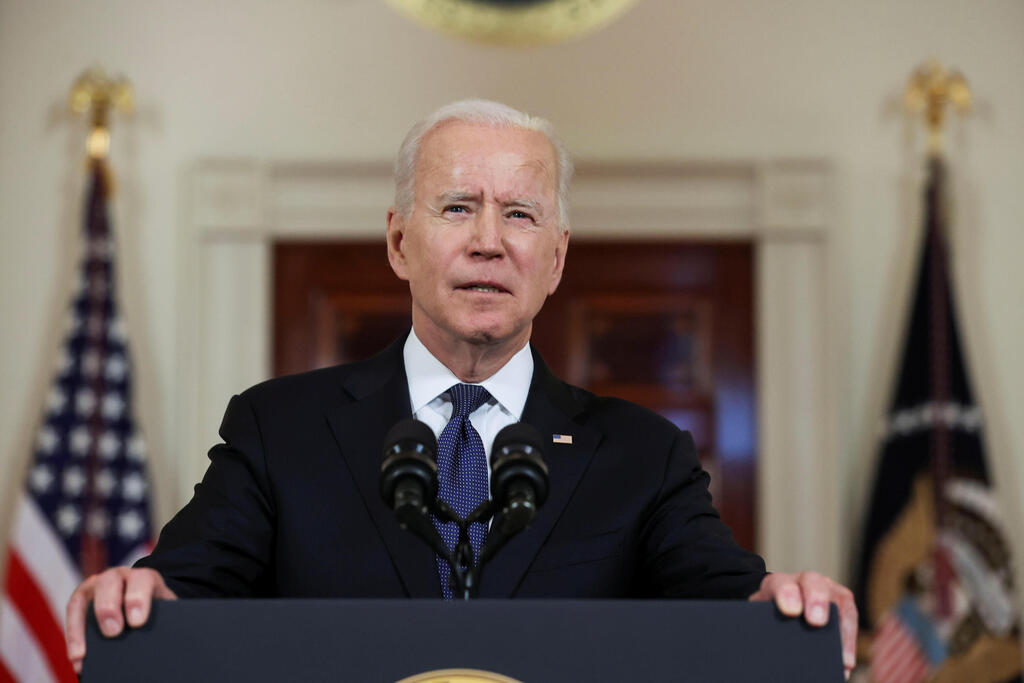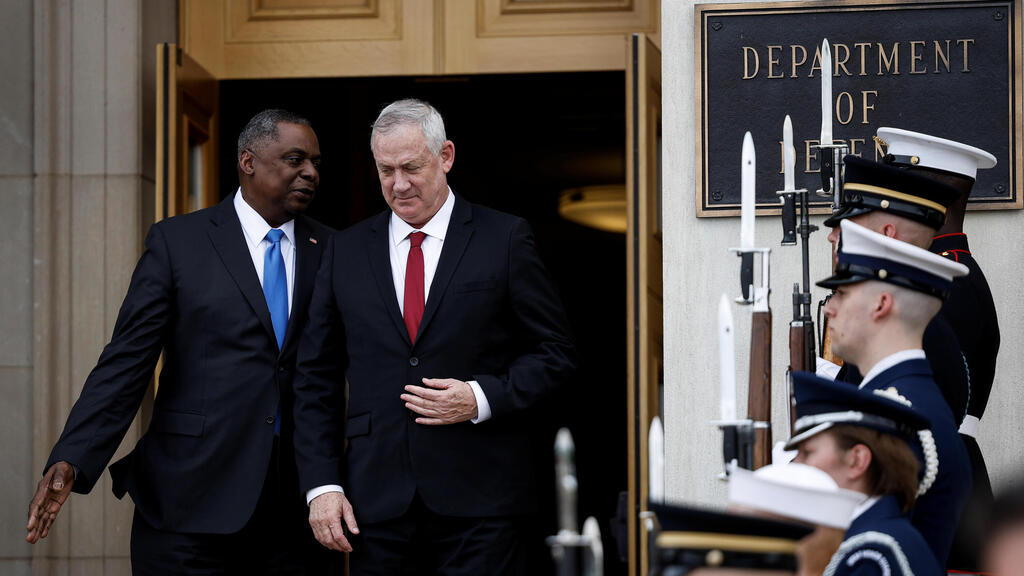When it comes to the Israel-Washington relationship, everything is changing. And nothing is changing at all.
A political bombshell has hit Israel, with Prime Minister Benjamin Netanyahu’s 12-year rule set to come to an end with the likely and imminent swearing-in of an ideologically broad but numerically narrow government.
Instinctively, the end of Netanyahu’s exclusive right-wing rule would be cause for the increasingly vocal and antagonistic anti-Israel progressive flank of America’s Democratic Party to celebrate.
Netanyahu’s public defiance of former Democratic president Barack Obama and his airtight embrace of his Republican successor Donald Trump has made him anathema to a segment of Democrats and problematic for others, even those who are generally considered supportive of Israel.
“For decades, Israeli leadership cultivated relations across both aisles on Capitol Hill,” says Rep. Andy Levin, D-Mich., a member of the House Foreign Affairs Committee.
“Netanyahu decided to go all-in with Republicans. He has undermined the trust of Democrats.”
Domestically, the formation of the new government has the potential to put on pause, perhaps just temporarily, the growing divide between Israel and the Democratic Party, which was put on full display last month during the latest round of violence between Israel and Hamas.
5 View gallery


Pro-Palestinian demonstrators in New York during the fighting between Israel and the Gaza terror groups last month
(Photo: Getty Images)
Even some centrist, staunchly pro-Israel Democrats joined the party’s progressive-wing members in issuing statements critical of the government’s conduct before and during the conflict.
But, can Prime Minister-designate Naftali Bennett, a man to Netanyahu’s right politically, be expected to reset ties?
“The fact that Bennett doesn’t have much political baggage in America, and that he was key in ousting Netanyahu, gives him some wiggle room with Democrats, despite his personal policy preferences,” says George Birnbaum, an American political consultant to Bennett.
“It is also going to be much harder for those who instinctively criticize the Israeli government for being right-wing to do so based on the broad coalition that is being presented and the mechanisms in place to balance out the range of views. The question will start being asked: Are you against Netanyahu, are you against right-wing Israeli policies or are you simply against Israel?” Birnbaum says.
The White House and State Department will not comment on any change in the Israeli government unless and until it’s a done deal, but both Secretary of State Antony Blinken and White House spokeswoman Jen Psaki said in recent days that the administration of U.S. President Joe Biden will work with whatever government is in place.
Maybe a more important question is whether Bennett really needs to reset ties.
Biden showed outward and diplomatic support for Israel during last month’s escalation with Hamas, and already has displayed enthusiasm for approving additional, hefty security assistance to Israel to replenish its Iron Dome interceptor missiles that were used to shoot down a good deal of Hamas’ 4,000 incoming rockets.
Biden’s sentiment comes despite the left flank of his party increasingly calling for a halt or review of weapons sales and security assistance to Israel.
5 View gallery


U.S. President Joe Biden speaks about the Gaza conflict shortly before a ceasefire came into effect last month
(Photo: Reuters)
Democratic congressional leadership, including establishment figures like Senate Majority Leader Chuck Schumer, D-N.Y., House Speaker Nancy Pelosi, D-Calif., and House Majority Leader Steny Hoyer, D-Md., have given no indication that they are willing to condition aid to Israel based on Israeli policy choices, and all three issued statements of support to Israel last month.
Additionally, Israel will continue to enjoy bedrock support from the Republican Party, which controls half of the Senate’s membership and, based on historical patterns, is likely to take back the House of Representatives in next year’s midterm elections.
The new government comes into play just as Democrats begin the process of drawing up an annual foreign aid bill that delivers billions of taxpayer dollars to Israel in the form of defense aid and hundreds of millions of dollars in development and humanitarian assistance to the Palestinians.
Defense Minister Benny Gantz, who is to continue in that role in the possible new government, met with a range of Biden administration officials in a flash visit to Washington on Thursday on that matter and others.
“The new political situation [in Israel] creates new opportunities to work with the Americans,” Gantz said during a briefing which concluded his visit.
5 View gallery


Defense Minister Benny Gantz and U.S. Defense Secretary Lloyd Austin stand together during an enhanced honor cordon for Gantz at the Pentagon, June 3, 2021
(Photo: Reuters)
Gantz, who has a long relationship with U.S. Defense Secretary Lloyd Austin, is seen by the Biden administration as emblematic of the low-key balance that the potential new coalition will bring to the American-Israeli relationship.
“We will continue important strategic dialogue on Iran in private discussion. We’re not going to provoke in the media,” Gantz said during his briefing, alluding to his recent public disagreement with Netanyahu after the premier stated he was willing to risk friction with Biden if it means neutralizing Iran’s nuclear capabilities.
Bennett likely will be spending the bulk of his time as premier trying to keep his razor-thin coalition intact, leaving his would-be foreign minister and eventual successor, Yair Lapid, to serve as Israel’s face abroad.
Lapid has been especially cognizant during his political career of building relationships with foreign political leaders across the spectrum and his chief strategist, American Mark Mellman, is a Democratic operative.
It is notable that Blinken set time aside to meet with Lapid, as leader of the Israeli opposition, during the secretary of state’s recent whirlwind visit through the region.
“Listen, there are going to be policy differences with this government. But, when you take Netanyahu out of the equation, they are easier to deal with,” says Mellman.
“The new Israeli government, assuming it comes into being, will have a much more bipartisan dynamic to it,” he says.
5 View gallery


Benjamin Netanyahu meeting with close ally Donald Trump at the White House in 2019
(Photo: GPO)
But, even a government inclusive of a pair of left-wing parties and an Islamic faction is not suddenly going to withdraw from the West Bank or divide Jerusalem, meaning that improved ties between Israel and progressive Democrats with specific policy prescriptions are not necessarily a given.
“The key now is to try to get the US to be more aggressive in enabling dialogue that hasn’t happened for too long now,” Rep. Mark Pocan, D-Wis, a leading advocate of a harder US line against Israel, says in a statement.
“We have been talking to a wall over there in Israel for years now. A new government with a new set of ears might at least be amenable to a fruitful dialogue," he says.
"But, we need to press our own government to make it happen, rather than just be satisfied to be dealing with people who aren’t openly hostile to us. It’s never just been about Netanyahu. It’s about values, about policies, about occupation, about Palestinian independence.”
Progressive Democrats may be able to open a new avenue for conversation. But with an Israeli government that is to include more progressive elements than it has in decades, one that includes an Islamist party for the first time and one that has just a single religious Jewish party, that same wing of the Democratic Party may find it even more frustrating that their push for major American policy changes vis a vis the Israel-Palestinian portfolio is unlikely to move forward.
And they’ll no longer be able to pin the blame on Netanyahu’s recalcitrance.
Reprinted courtesy of The Media Line


